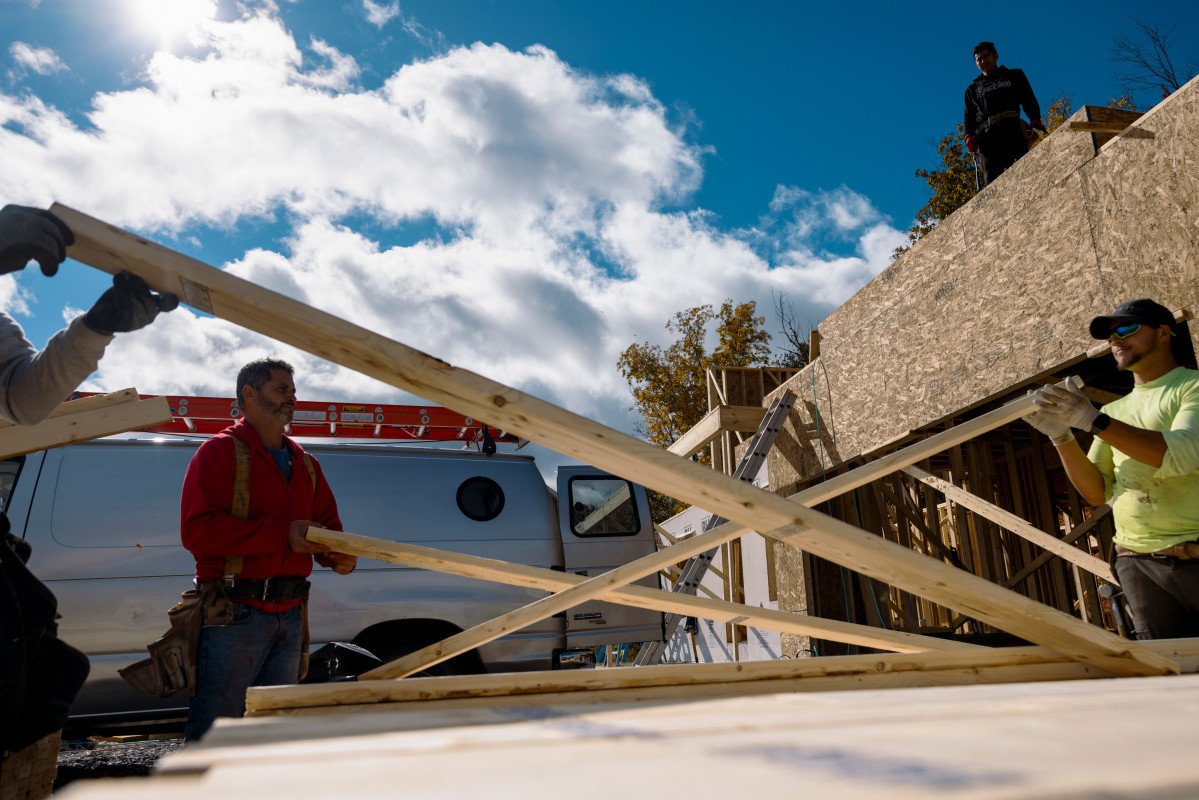
D.R. Horton (DHI) is the nation's biggest homebuilder, with operations in just about all of the country.
And it sees a problem.
In the fiscal fourth quarter, which ended Sept. 30, it closed sales of 23,647 homes, up 3.1% from the year-earlier period. Revenue was a different story: $10 billion, down 4.8% from a year earlier.
💰💸 Don’t miss the move: SIGN UP for TheStreet’s FREE Daily newsletter 💰💸
That was mostly because it often must offer incentives through interest-rate buydowns to make a sale.
A buydown involves paying additional funds up front to reduce the interest rate on a mortgage, usually in the early years of the loan term.
And the trend isn't improving.
Related: Mag 7 earnings: What to know before Apple, Alphabet, Microsoft, and Meta report results
Mortgage rates had fallen from about 8% in October 2023 nearly to 6% in early-to-mid September as the financial markets expected the Federal Reserve to cut interest rates.
The Fed did cut rates in mid-September, but bond yields have been rising ever since. Mortgage rates are again topping 7%. As a result, many buyers are waiting, yet again, for interest rates to drop.
That forces a company like Horton, big and strong enough to operate its own mortgage business, to buy down rates.
"We believe that the volatility of rates, combined with the general uncertainty during the election season, is causing some buyers to stay on the sides in the near term," Chief Executive Paul Romanowski said on the company's analyst conference call Tuesday.
D. R. Horton uses incentives to close sales
D.R. Horton is so big that its 93,660 closings during the fiscal year represent nearly 14% — almost 1 of every 7 — of the total U.S. sales of new single-family homes.
Some 80% of buyers financing their purchases through Horton used buydowns in the fourth quarter, Jessica Hansen, senior vice president of communications, said on the conference call. That was up from 74% from a year earlier and represented 63% of total sales.
Bigger buydowns translate into more costs to Horton to get a sale to closing.
More Real Estate:
- Mortgage rates could revive housing market in 2025
- Surprising changes coming soon for mortgages and down payments
- Real estate software artificially raised rents, DOJ lawsuit alleges
As a result, D.R. Horton's gross profit margin narrowed to 23.6% from 24%, and the company expects to spend more on buydowns in fiscal 2025 because interest rates are not falling. And that assumes that it can get buyers to agree to these deals.
D.R. Horton has now pegged first-quarter revenue at $6.8 billion to $7.3 billion, compared with the Wall Street estimate of $7.7 billion. Full-year guidance is $36 billion to $37.5 billion; Wall Street had been looking for $39.4 billion.

As D.R. Horton slides, so do its competitors
The result of all this: D.R. Horton shares opened on Tuesday down 15%; they finished the regular session off 7.2% at $167.32.
If a company as big as D.R. Horton sneezes, the other publicly traded homebuilders catch colds.
The iShares U.S. Home Construct ETF (ITB) was off 2.9% to $117.50.
Lennar (LEN) was off 2.3% to $170.10. PulteGroup (PHM) dropped 3.2% to $129.58. Toll Brothers (TOL) gave up 2.2% to $147.40.
The ETF also includes builders and suppliers like Home Depot (HD) , Lowe's (LOW) and paint manufacturer Sherwin-Williams (SHW) . They were off more modestly than the builders.
Related: Veteran fund manager sees world of pain coming for stocks

.png?w=600)





